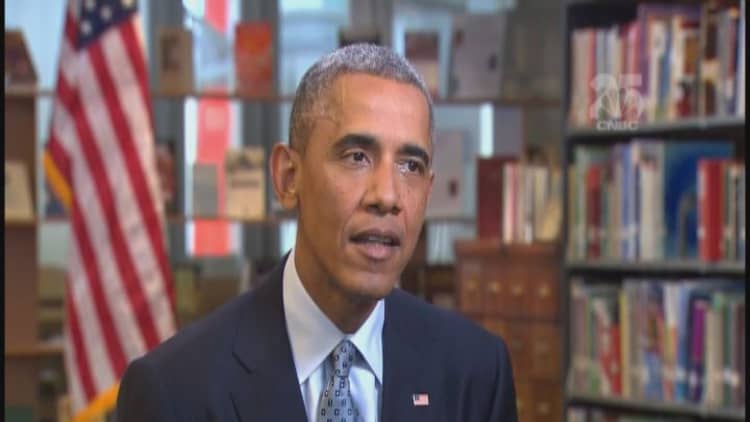Rule-making and enforcement from federal agencies have a majority of employers worried about how to run their businesses, according to a new survey, but they're less worried about Obamacare than they once were.
Fifty-six percent of those polled said that more aggressive reforms coming from agencies such as the National Labor Relations Board have them concerned over the effect the rules could have on workplace policy.
The survey was conducted this past June by labor law practice firm Littler Mendelson and polled 500 businesses throughout the U.S. in various industries.
"Employers see all this as overwhelming," said Michael Lotito, co-chair of Littler's Workplace Policy Institute. "Businesses feel there's an overreach with all these rules coming down."
Lotito sand that the Department of Labor's pursuit of President Barack Obama's "income equality" agenda is just one of the bigger worries for employers.
Obama:What's legal might not be right for US
"Things like overtime pay rules, privacy rules, security breach rules, are making businesses feel helpless," he said. "All of this has an effect on their bottom line."
But one analyst termed the responses as just more of the same from the business community.
"Any time an entity is subject to a regulation, they don't like it." argued Charles Lamberton, an employment and discrimination lawyer in Pittsburgh.
"Businesses have enjoyed a lot of deregulation over the last 40 years," he said. "They will always moan and complain when someone tries to level the playing field."
Fewer Obamacare worries
This is the third consecutive year that Littler has conducted the survey, and among the key findings in comparison with previous years are fewer concerns about implementing the Affordable Care Act.
Forty-one percent of respondents said the health-care law would have the most impact among factors affecting the workplace over the next 12 months. But that's down from 57 percent in 2013.
The same can't be said for whistleblower rules, however. The rules, handed down from the Securities and Exchange Commission, are designed to uncover internal wrongdoing at banks and other businesses. Fifty-three percent of employers said that whistleblowers are more inclined to report misconduct to regulators rather than to someone within the organization.
Meanwhile, 56 percent of employers reported that they are taking steps to address these issues through stronger internal compliance programs.
Read MoreCitigroup unit settles with SEC for record penalty
The survey also showed a major increase in worries over employee lawsuits. Forty-eight percent of respondents reported that current economic conditions are leading disenchanted employees to bring more lawsuits or claims against employers. That's up 25 percent from 2013.
A significant percentage of respondents— 69 percent—indicated concern about employees abusing leave granted under the Family and Medical Leave Act (FMLA) and similar laws.

Employers appear to be somewhat more comfortable with the size of their current workforce, but many plan to hire.
The percentage of respondents indicating no plans to make changes to their workforce has increased steadily over the past three years from 13 percent in 2012 to 22 percent in 2013 to 26 percent in 2014.
However, employers still remain relatively bullish in their hiring plans, with the majority, 53 percent, planning to hire workers in the coming year.
Read MoreTaxes will go up if inversions rise: Mark Cuban
This last point shows how businesses can survive even with rules they don't like, said Christopher Rhomberg, a labor expert and professor of sociology at Fordham University.
"The regulations won't hurt any economic recovery," he said. "A business thrives on supply and demand for its products, not necessarily on how many rules it has to follow."
—By CNBC's Mark Koba


